Have you ever felt frustrated by a landlord who seems indifferent to your living conditions? It's a common issue that many renters face, and voicing your concerns is not just importantâit's your right. Writing a letter to formally address landlord neglect can help prompt necessary repairs and improvements. If you're unsure where to start, keep reading for tips and a helpful template that can guide you through the process.
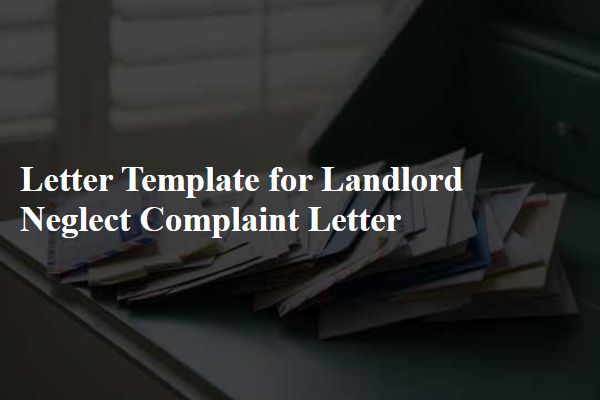
Clear identification of tenant and property details.
Tenants living in rental properties often face issues due to landlord neglect. In such cases, documenting the situation succinctly is critical to achieving resolution. Include tenant identification details such as names, contact information, and the date of the letter. Specify the property address including unit numbers if applicable to establish the location clearly. Highlight specific neglect concerns such as plumbing leaks, heating failures, or code violations. Mention any prior communication regarding these issues, including dates and methods, to emphasize ongoing neglect. Document local housing laws or regulations that the landlord may be violating to strengthen the complaint. Collectively, these details create a strong foundation for addressing landlord neglect effectively.
Specific description of neglect or issues faced.
Residents often experience issues related to inadequate maintenance in rental properties such as mold growth and plumbing leaks. Mold, prevalent in damp areas like bathrooms and basements, can pose health risks, leading to respiratory problems and allergies. Inadequate heating systems can leave apartments cold during winter months, causing discomfort and potential pipe damage. Plumbing leaks, commonly found under sinks or in ceilings, may lead to water damage, attracting pests. Tenants have the right to safe living conditions, and neglect in addressing these concerns can result in significant consequences for both health and property value. Local housing codes, such as those enforced by municipalities, often require landlords to maintain properties to a certain standard, ensuring a safe environment for all residents. Timely repairs not only enhance tenant satisfaction but also protect the landlord's long-term investment.
Mention of previous communications or attempts to resolve.
A persistent lack of maintenance in the apartment located at 123 Maple Street has led to increasingly unsatisfactory living conditions, prompting this formal complaint to the landlord, Mr. John Doe. Over the past three months (July to September 2023), multiple communications via email and phone (approximately five attempts) have been made to address issues such as a leaking faucet in the kitchen and inadequate heating, particularly during the cold nights typical of winter months in New York City. Despite these efforts, no repairs or follow-up actions have occurred, exacerbating discomfort and safety concerns in the residence. Documentation of each correspondence has been retained to substantiate the claim of neglectful management and to facilitate an urgent resolution to restore basic living standards.
Request for immediate action and potential consequences.
Neglected housing conditions can pose serious risks to tenant health and safety, particularly in residential buildings, such as apartments. Leaking roofs can lead to structural damage, while mold growth may result from prolonged moisture exposure. Unsafe electrical wiring can increase fire hazards, particularly with older systems dating back to the 1980s. Moreover, pest infestations, commonly including rodents or cockroaches, can create unhygienic living environments. Local housing codes in cities like New York may require landlords to address these issues promptly, typically within 30 days of notification. Failure to rectify these problems can result in legal actions, including civil lawsuits or tenant-organized inspections by health and safety departments, which could impose fines or compel repairs.
Polite closing and contact information for follow-up.
Landlord neglect can significantly impact tenant living conditions. Issues such as leaky faucets, broken heating systems, or malfunctioning smoke detectors in residential properties (for example, units within a multi-family complex in Brooklyn) can create a negative living environment. In New York City, tenant rights are protected under local housing laws, which mandate landlords to maintain safe and habitable conditions. Tenants can document complaints with photographs and written communication to justify their claims. Persistent neglect may lead to potential legal action or involvement of housing authorities. Tenants are encouraged to maintain records of communications for follow-up and resolution efforts.

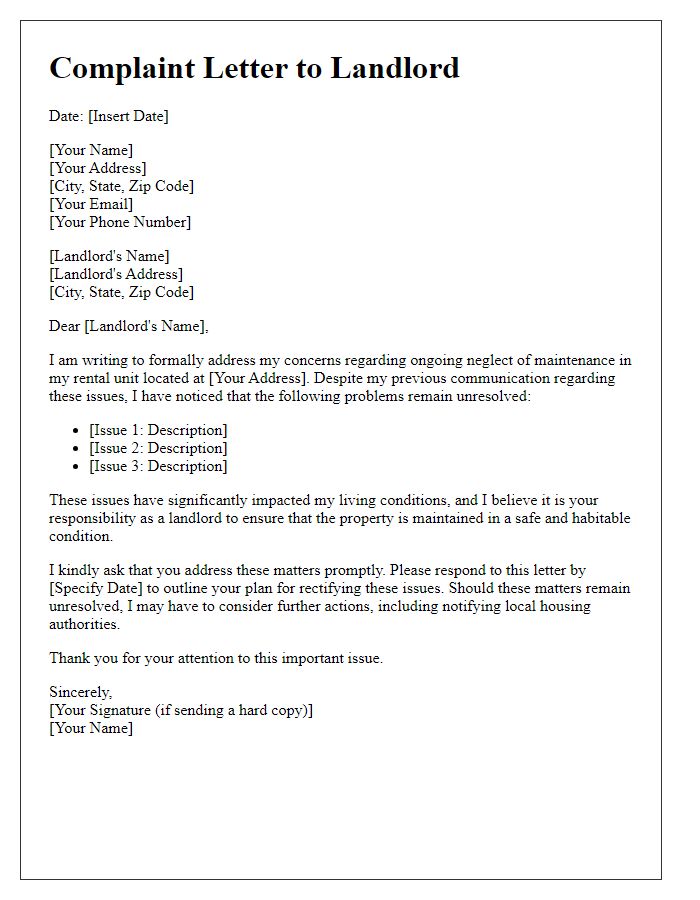
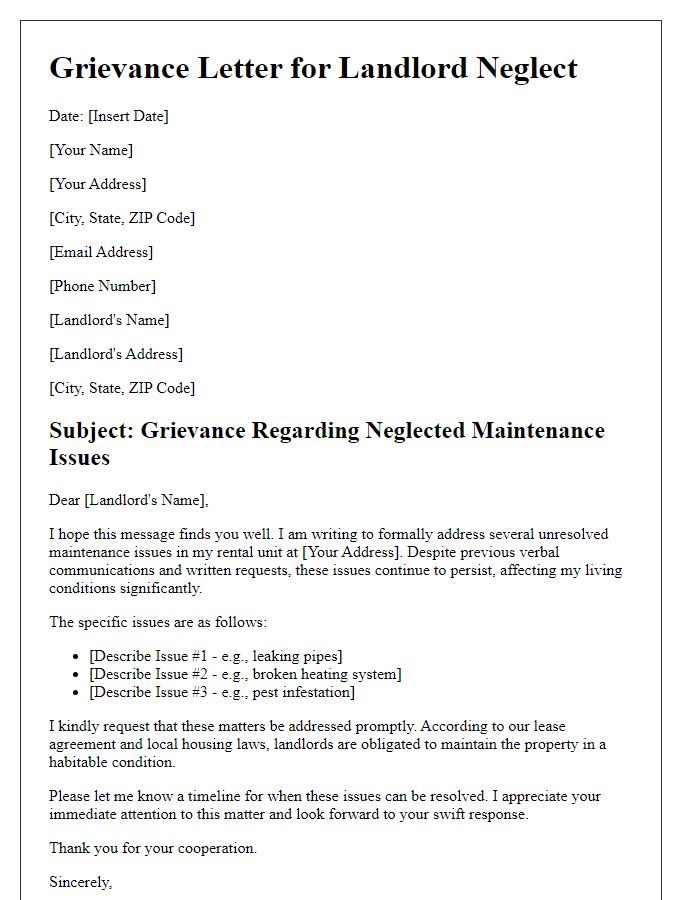
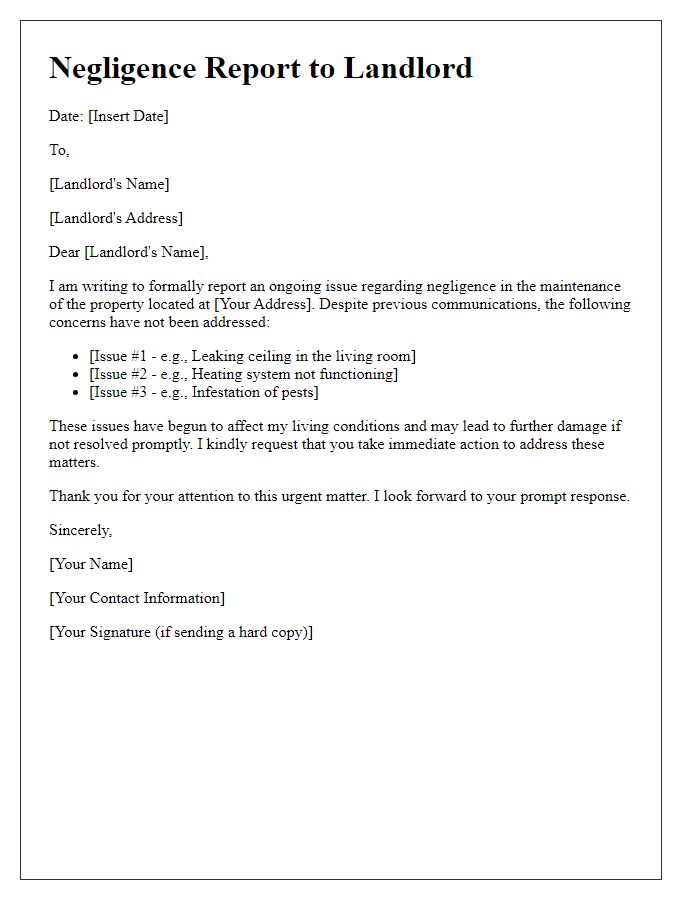
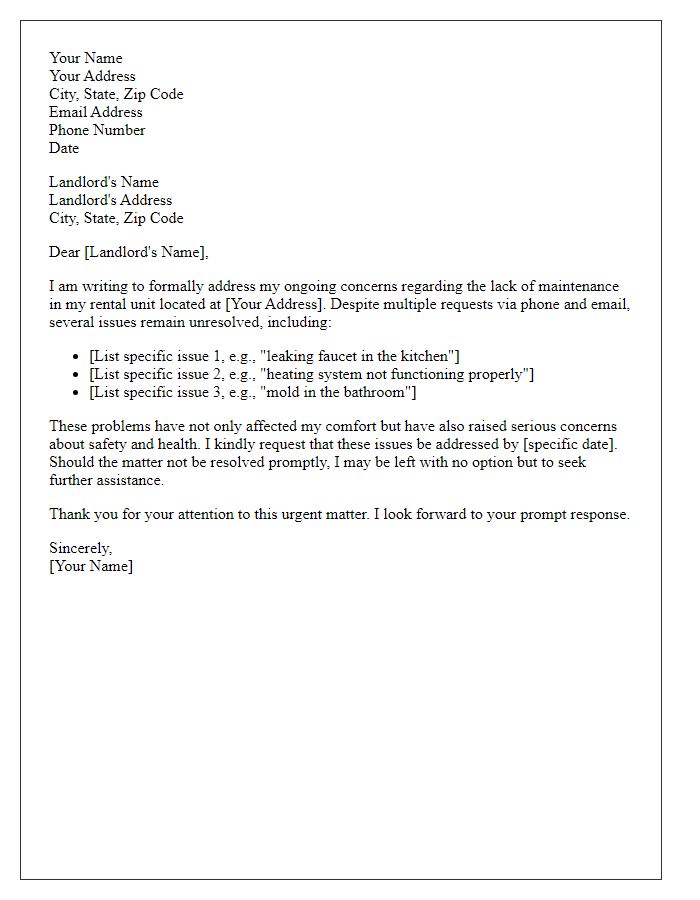
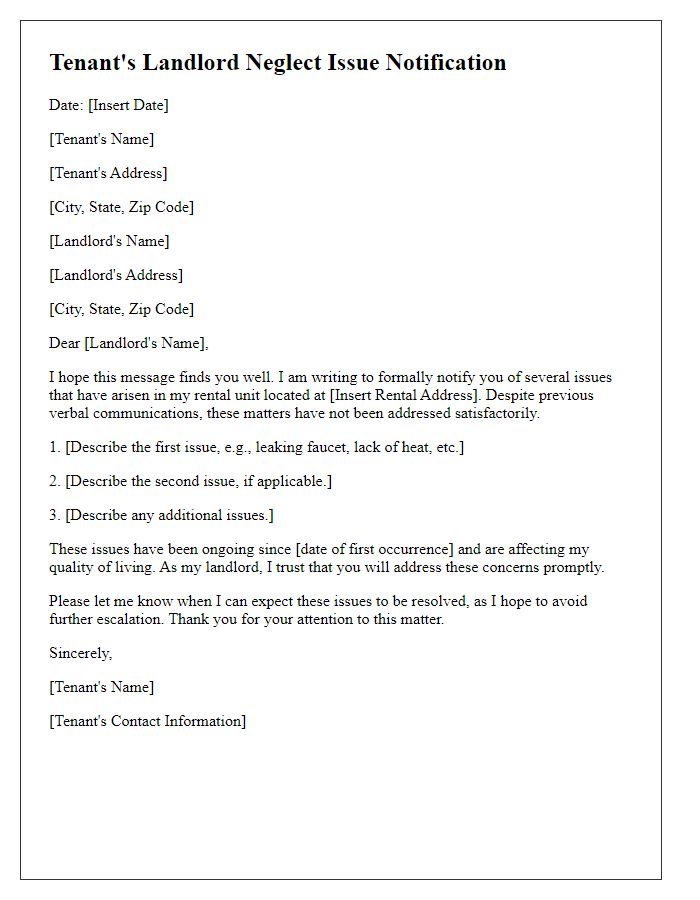
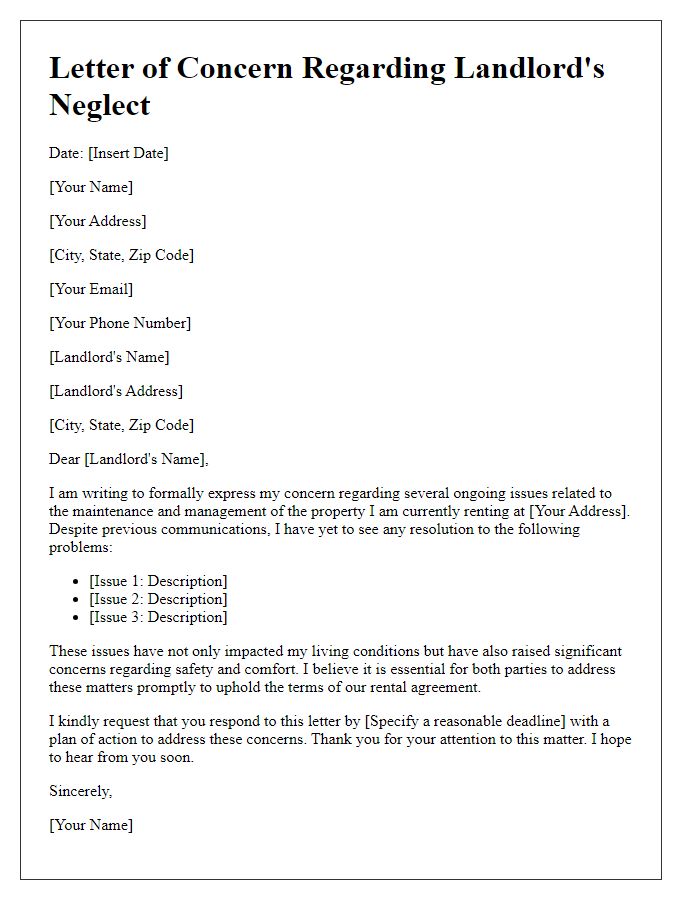
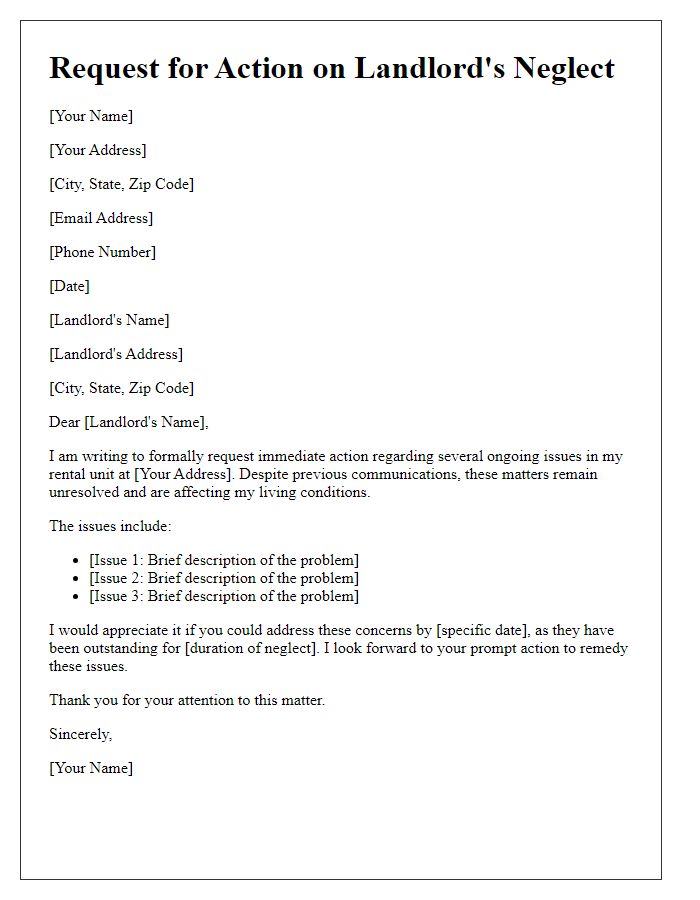
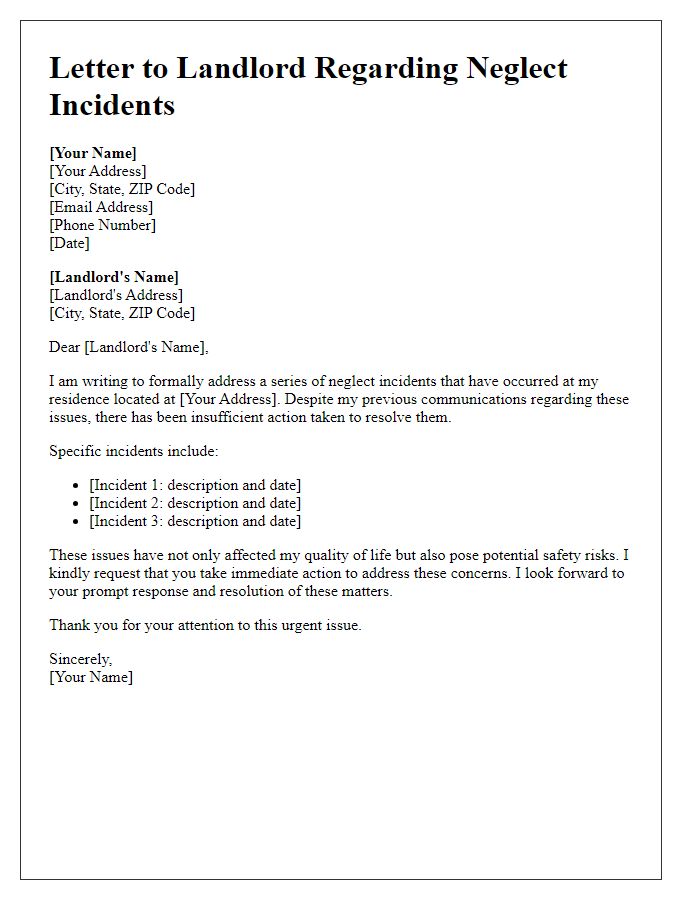
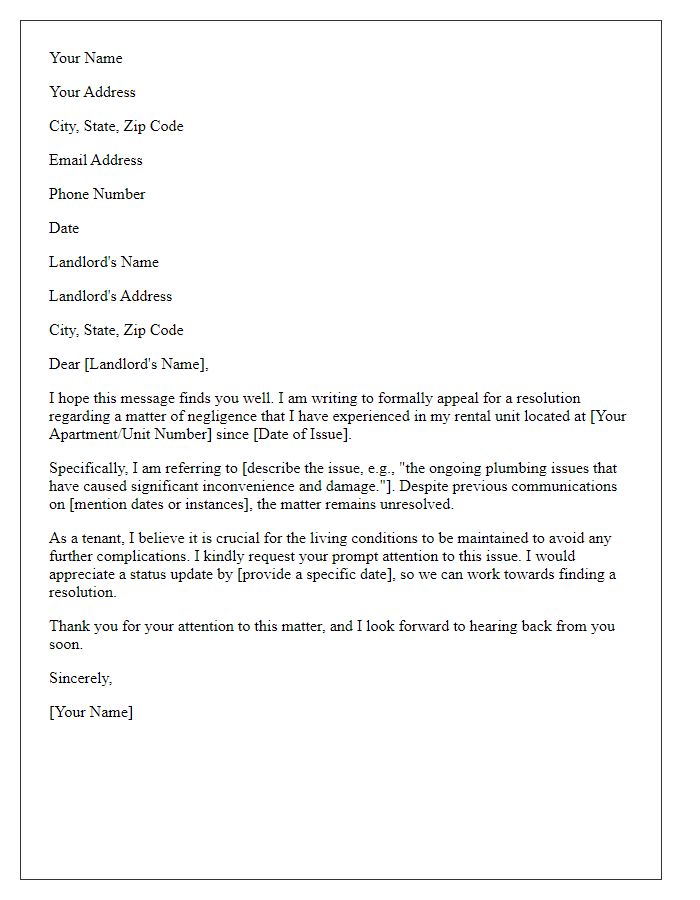
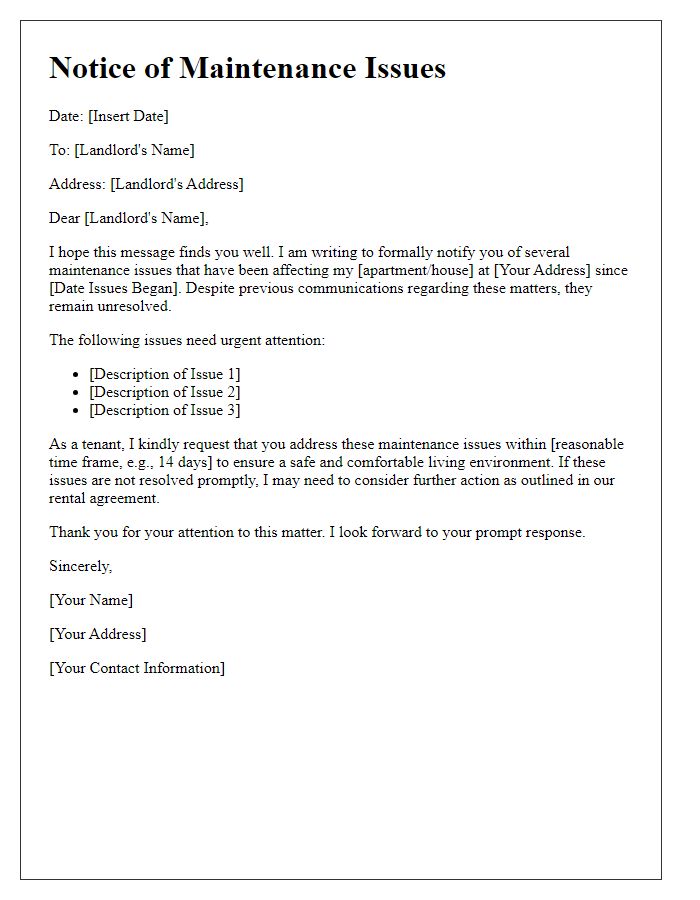

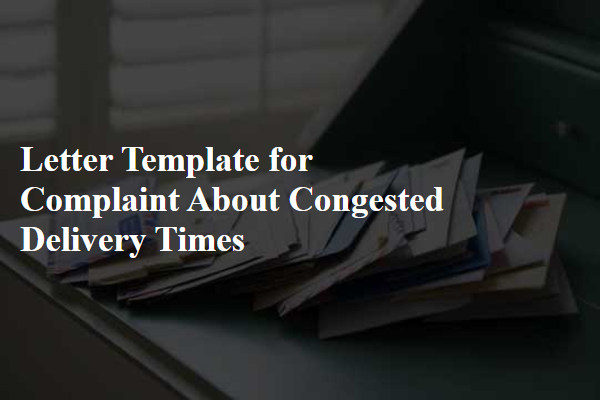
Comments